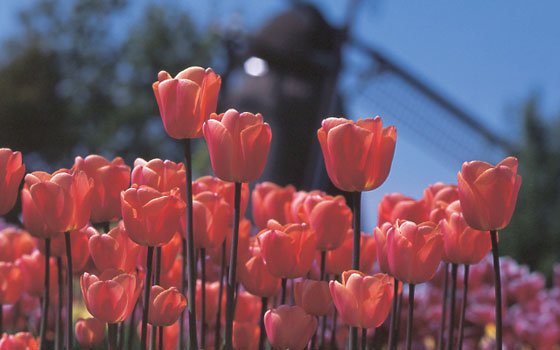Holland is a
region in the western part of the Netherlands. The term Holland is also
frequently used as a pars
pro toto to refer to the whole of the Netherlands. This usage is generally
accepted but disliked by part of the Dutch population, especially in the other
parts of the Netherlands.[1]
From the 10th to the
16th century, Holland proper was a unified political region, a county ruled by the Counts of Holland. By the 17th century,
Holland had risen to become a maritime and economic power, dominating the other
provinces of the Dutch
Republic.
Today, the former County of Holland
consists of the two Dutch provinces of North Holland and South Holland, which together include the
Netherlands' three largest cities: the country capital Amsterdam; seat of
government The Hague; and Rotterdam, home of Europe's largest
port.
The proper name of the area in both Dutch and English is "Holland". "Holland" is a part of the Netherlands. "Holland" is informally used in English and other languages, including sometimes the Dutch language itself, to mean the whole of the modern country of the Netherlands.[5] (This example of pars pro toto or synecdoche is similar to the tendency to refer to the United Kingdom as "England".)The people of Holland are referred to as "Hollanders" in both Dutch and English. Today this refers specifically to people from the current provinces of North Holland and South Holland. Strictly speaking, the term "Hollanders" does not refer to people from the other provinces in the Netherlands, but colloquially "Hollanders" is sometimes mistakenly used in this wider sense.In Dutch, the Dutch word "Hollands" is the adjectival form for "Holland". The Dutch word "Hollands" is also colloquially and occasionally used by some Dutch people in the sense of "Nederlands" (Dutch), but then often with the intention of contrasting with other types of Dutch people or language, for example Limburgish, the Belgian form of the Dutch language ("Flemish"), or even any southern variety of Dutch within the Netherlands itself.However, in English there is no commonly used adjective for "Holland". "Dutch" refers to the Netherlands as a whole, not just the region of Holland. "Hollands" is ordinarily expressed in English in two ways:
The following usages apply in certain limited situations but do not ordinarily serve as the English equivalent of the commonly used Dutch adjective "Hollands".
|

Tulip Festival in Holland
Dutch tulips are found in several areas. There are tulips in the Westland,
tulips in North Holland and also in the Noordoostpolder. But did you know that
the Noordoostpolder has the most tulips of the whole country? The Tulip Festival
was created to introduce you to the tulip fields in the Noordoostpolder.











No comments:
Post a Comment